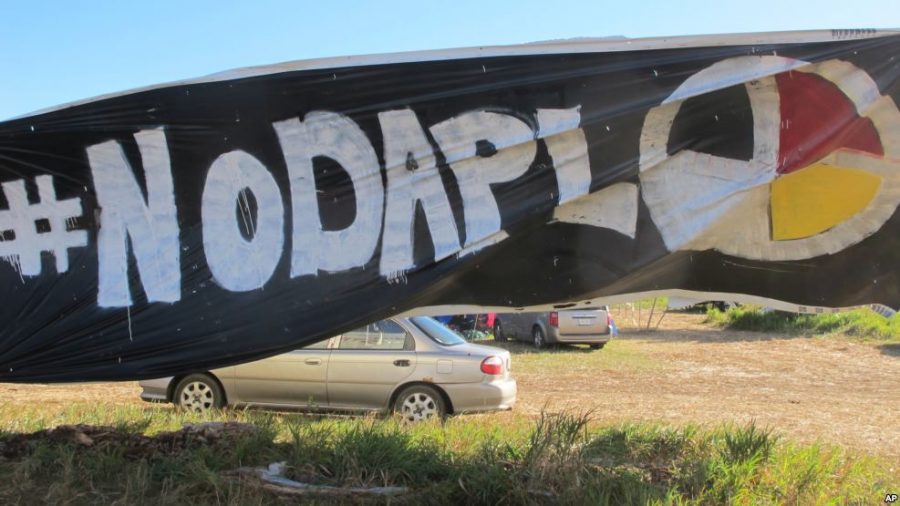On Nov. 25, the Army Corps of Engineers sent a letter to the Standing Rock Sioux Tribe evicting protest camps from the land around the Dakota Access Pipeline by Dec. 5, citing violent clashes between law enforcement and protesters and a concern for protesters’ safety as the harsh North Dakota winter sets in.
The letter amounts to concern-trolling, mischaracterizing the realities of the situation at Standing Rock in a revisionist take on the facts.
The Corps’ suggestion that violent clashes between law enforcement and protesters are inevitable as long as protesters remain in the area is predicated on an assumption that the protesters are the violent element in the equation. But this simply hasn’t been the case.
Any reporters present at the protest have not substantiated the idea that protesters have been violent. However, violence by law enforcement has been widespread, from the recent use of water cannons on protesters in below-freezing temperatures to horror stories such as Sophia Wilansky, who had a huge chunk of her lower arm blown away by a concussion grenade. Excessive use of pepper spray, rubber bullets, and Tasers on otherwise peaceful protesters has been common.
Ultimately, the violence at Standing Rock has been one sided. The responsibility of de-escalation lies with the police as agents of the state. The “nonlethal” weapons utilized by the Morton County authorities have the potential for serious bodily harm and thus should not be treated as tools.
The violence at Standing Rock is part of a concerted effort by the state in support of Dakota Access, and more broadly the oil industry, to repress opposition to the Bakken pipeline. The endemic violence perpetuated by these U.S institutions in North Dakota makes their claims of concern for protesters’ well-being laughable. It is clear that this ultimatum, that protesters move to government-mandated “free speech zones” or be arrested, is nothing other than a way to stifle the protesters rather than seriously engaging legitimate concerns among the Standing Rock tribe and environmental groups, among others.
The concept of limited free speech is not a new one; at Iowa State University, protests must occur in so-called “free speech zones” and be detailed ahead of time with administration. The very notion of a free-speech zone violates both the principles of the First Amendment and the spirit of protest.
The First Amendment enshrines the idea that we the people should be free to speak our minds without fetters. By limiting the spaces in which we can freely express ourselves, institutions show that free speech isn’t quite so free and instead construes free speech as a privilege. This is clearly in opposition to the First Amendment, the amendment that lays the foundation for our other inalienable constitutional rights.
Free-speech zones also fly counter to the tenets of protest. When local protesters blocked I-80, people were angry that they were inconvenienced. Protests are meant to disrupt the normal and everyday in an effort to demand the attention of a mal-informed population. By relegating protesters to free-speech zones, the government cuts off their access to the people and neuters the possibility of a protest stopping the everyday.
While that might sound good to some, the limitation of free speech anywhere is a threat to free speech everywhere. The dispute at Standing Rock is rooted in settler colonialism, the ongoing American genocide against Native Americans, and capitalist disregard for the environment. These concerns should be heard listened to. Corporate interests misused eminent domain in Iowa to take land from Iowa farmers, an economic issue that should anger people of all political persuasions.










